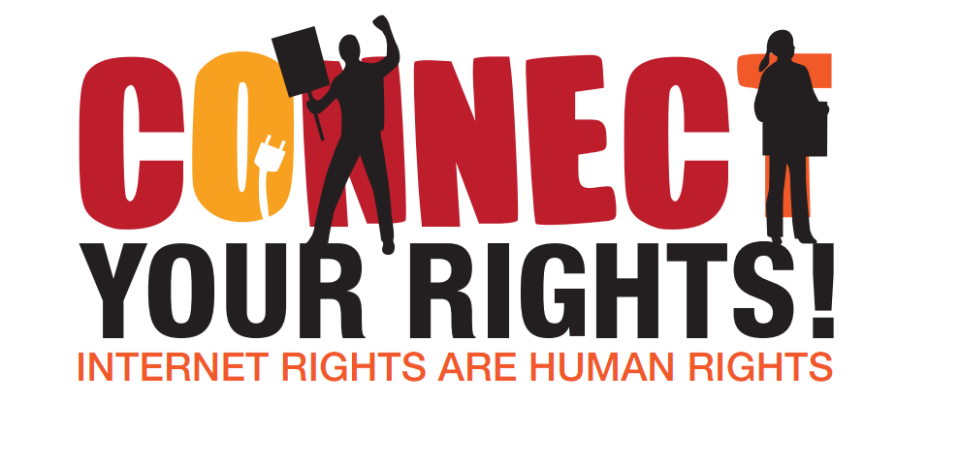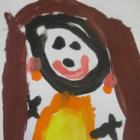
A couple of years ago I stumbled across GenderIT.org while browsing the web for information about women’s rights, human rights defenders and the internet. I was hooked, but I never thought that I would be invited to write an editorial.
Then, in April this year I was appointed an APC project co-ordinator, helping to launch a new campaign “Connect Your Rights! Internet Rights are Human Rights.” The campaign calls for action to respect, protect and promote freedom of expression, freedom of peaceful assembly and association, and democratisation. I’m delighted this edition of GenderIT.org takes a closer look at women’s human rights defenders and how their rights to freedom of expression and freedom of association are affected by internet restrictions.
Women’s human rights defenders (WHRD) from around the world talk about secure online communication and practical actions for building capacity for women’s human rights activism. In “Who’s gonna track me?” and “Security communications essentials...”, GenderIT.org's writers Flavia Fascendini and Grady Johnson talks with WHRDs from the Asia Pacific region including Fiji, India, Indonesia and the Philippines, who make the link between online and offline interferences with their rights and freedoms.
Because they are women, WHRDs face many unique threats and obstacles. The reasons include the nature of patriarchal systems for subordination of women, various socially constructed gender roles and norms, and religious and other fundamentalisms which seek to constrain women’s public and private lives. This results in restrictions on women’s autonomy, freedom of movement, freedom of expression and freedom of association, constraining their activism and their right to be human rights defenders.
WHRDs can experience more hostility, and at the same time lower levels of protection, compared to their male colleagues. Margaret Sekaggya, the Special Rapporteur on Human Rights Defenders, highlights some of these issues and devotes her annual report to the situation of WHRDs and those working on women’s rights and gender issues, particularly in Colombia, Mexico, Guatemala, Brazil, Honduras and Peru.
I found the interviews with WHRDs in this edition both compelling and inspiring. The most common interferences with the right to peaceful assembly and association they experience include the use of excessive force against them by police or others during assemblies; arrest and detention while exercising freedom of assembly; judicially mandated harassment; travel restrictions for defenders wishing to participate in assemblies to promote and protect human rights; and restrictions imposed through legislative and administrative measures.
Restrictions on the right to freedom of association include activities such as requiring organisations to submit to government supervision and monitoring; administrative and judicially mandated harassment by authorities, including special grounds and procedures for dissolution; difficulties in the formation and registration of human rights associations, and criminal sanctions for unregistered activities.
New combinations of online and offline issues are also emerging that affect the ability of WHRDs to use technology to effectively mobilize around women's rights. These include restrictions on access to content (especially blocking and filtering content); difficulties in establishing and maintaining online and offline trust; reaching offline constituencies; the need for new skills; privacy and censorship threats; and impersonation and infiltration issues.
Computer confiscation, virus and spyware attacks, document corruption, slow computer operation and intermittent internet connection, email and internet browser monitoring, internet and email filtering, receiving unwanted emails: WHRDs report that these are all deliberated commonplace attacks to WHRDs' online privacy and security, directly affecting their right to freedom of association and their ability to participate freely in democratic processes.
Edna Aquino, campaign manager for WLUML (Women Living Under Muslim Laws) and the Violence is Not Our Culture Campaign, provides insight into these issues by reflecting on changes in feminist activism from the 1980s. Edna highlights the emergence of ICTs in women’s human rights and the subsequent transformation of women’s rights with the use of ICTs as an organising tool. But Edna warns of the possibilities of women being marginalised by the move to 3G and mobile technology and calls for more universal on-line support for WHRDs.
Mary Jean Real, outgoing co-ordinator of the Women Human Rights Defenders International Coalition, talks about the opportunities, challenges and digital security risks for WHRDs using ICTs. She calls for more research on the ways gender disparities in the use of ICTS particularly affect the activism of WHRD and suggests there is a need for a new online platform for WHRD using ICTs in their activism.
Two trainers in secure online communications talk frankly about changes in technology and of seeing women’s fear of technology shift to a sense of empowerment and active engagement as they are given training and a new capacity to exercise their rights.
Several strong themes emerge.
First, women’s human rights to freedom of expression and freedom of association are constantly being affected by changes in technology and we must understand how these changes are experienced in light of sexuality, class, geographic location, race, and other axes of marginalization.
Second, women’s human rights defenders must be able to respond to these changes and continue to build their capacity to find new ways to participate in and shape these changes.
Practical tools for activism and advocacy are critical if women are to participate fully and safely in democratic processes.
Finally, there are powerful opportunities for practical action to promote and protect the roles of WHRDs. By working together and building strong networks, women’s human rights defenders can, and are, taking these opportunities.
I encourage you to join the “Connect Your Rights! Internet Rights are Human Rights” campaign and join in action to respect, protect and promote freedom of expression, freedom of peaceful assembly and association and democratisation.
More about the author: Joy's work in human rights began in earnest in 2001 when she attended the World Conference on Racism in Durban, South Africa. Afterwards, from 2002 until 2010, she was part of the New Zealand Human Rights Commission, working with communities in the Asia-Pacific region on human rights, women’s rights, and rights for LGTBI people. She has extensive experience in different contexts from local communities through to the United Nations. Joy Liddicoat currently as APC Project Coordinator for the Connect your rights! Internet rights are human rights campaign. She lives in New Zealand.
This article is part of “Connect your rights: Internet rights are human rights” campaign financed by the Swedish International Development Cooperation Agency (Sida)
- 8755 views






Add new comment